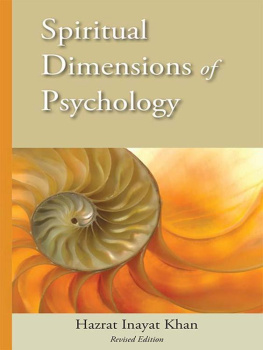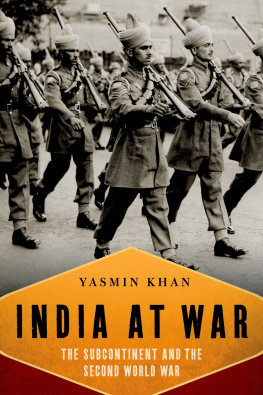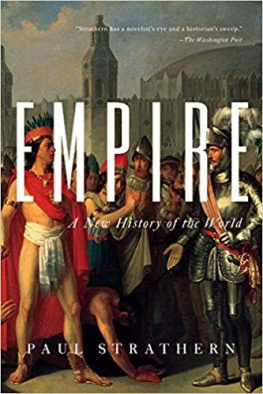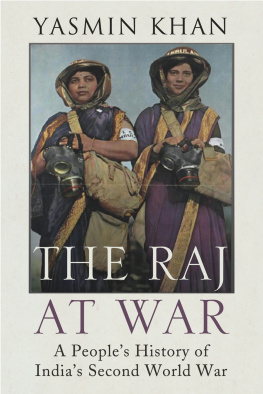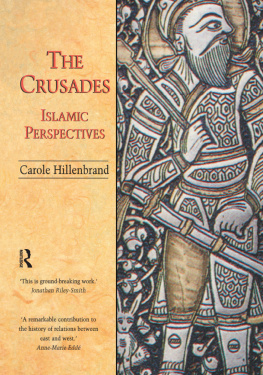Contents
About the Book
The Second World War was not fought by Britain alone. India produced the largest volunteer army in world history: over 2 million men. But, until now, there has never been a comprehensive account of Indias turbulent home front and the nexus between warfare and Indias society.
At the heart of The Raj at War are the many lives and voices of ordinary Indian people. From the first Indian to win the Victoria Cross in the war to the three soldiers imprisoned as traitors to the Raj who returned to a heros welcome, from the nurses in Indian General Hospitals to the labourers, prostitutes and families their testimonies reveal the great upheaval experienced throughout the land.
Yasmin Khan presents the hidden and sometimes overlooked history of India at war, and shows how mobilisation for the war introduced seismic processes of economic, cultural and social change decisively shaping the international war effort, the unravelling of the empire and Indias own political and economic trajectory.
About the Author
Yasmin Khan is a British writer and historian. She is an Associate Professor of History at the University of Oxford and a Fellow of Kellogg College.
Her first book, The Great Partition: The Making of India and Pakistan, won the Gladstone Prize from the Royal Historical Society in 2007 and was longlisted for the Orwell Prize in 2008.
List of Illustrations
Chronology of Major Events
1939
| 1 September | Government of India Act centralises executive authority |
| 3 September | War declared |
| 3 September | Recruiting stations in India opening; internment of Italians and Germans starts |
| 3 November | United Provinces and Bombay Congress ministries resign, followed by ministries in Orissa, Central Provinces and NWFP |
1940
| 13 March | Udham Singh assassinates Michael ODwyer in London |
| 224 March | All India Muslim League meeting declares Lahore Resolution |
| 10 May | Churchill becomes Prime Minister in Britain |
| 3 July | Subhas Chandra Bose imprisoned (until 5 December 1940) |
| 8 August | The August Offer presented in a White Paper (rejected by Muslim League and Congress) |
| 18 September | Sinking of the SS City of Benares |
| 17 October | Gandhi authorises individual satyagraha followed by 20,000 arrests |
| 25 October | Eastern Supply Group meets in Delhi to discuss war supplies |
1941
| January | Indian language broadcast service started for Indian troops in Middle East |
| January | Subhas Chandra Bose escapes India overland for Germany |
| FebruaryApril | East African campaigns, e.g. battle of Keren |
| April | India celebrates Allied North and East African victories |
| 22 June | Operation Barbarossa begins; Hitler invades Russia |
| 7 August | Rabindranath Tagore dies |
| November | First Victoria Crosses awarded to Indians during the war |
| 7 December | Japanese attack Pearl Harbor, American entry into war |
1942
| 15 February | Singapore falls to the Japanese, first INA being formed American troops arriving in Calcutta |
| 19 February | Subhas Chandra Bose makes first open broadcast to India |
| 27 February | Japanese aircraft raid Port Blair in Andaman and Nicobar |
| 6 April | Vizagapatam and Cocanada bombed |
| 14 April | False alarm in Madras, city evacuated |
| 78 March | Rangoon falls; flow of refugees from Burma increasing |
| 23 March | Cripps arrives in India |
| 29 March | Burma Road cut by Japanese |
| 56 April | Bombing raids on Ceylon |
| April | Formation of Womens Auxiliary Corps (India) |
| 10, 16 May | Bombing raids on Imphal |
| May | Allies withdraw from Burma |
| June | Grady technical mission in India from USA |
| July | First battle of El Alamein |
| 14 July | Congress Working Committee meets at Wardha |
| July | Communist Party of India legalised |
| 8 August | All India Congress Committee adopts Quit India resolution |
| 9 August | Gandhi and Congress leaders arrested |
| August | Quit India movement breaks out across the country: at least 2,500 deaths and 60,00090,000 arrests |
| October | Second battle of El Alamein Cyclone hits Midnapore |
| 13 December | Chittagong bombed |
| 17 December | British forces occupy parts of Arakan region in Burma |
| 208 December | Air raids on Calcutta |
| December | Building of the Ledo Road initiated |
1943
| 10 February | Gandhi fasts for ten days and risks death African troops start to arrive in India |
| 7 March | Japanese counter-offensive at Arakan Scale of famine in Bengal becomes apparent |
| 9 May | Evacuation of Maugdaw in Arakan region of Burma |
| 21 May | Public holiday to celebrate victory in North Africa |
| 19 June | Announcement of Wavells appointment as Viceroy and Auchinlecks as Commander-in-Chief, India |
| 21 June | Boses first speech from Tokyo broadcast |
| 2 July | Bose lands in Singapore in a Japanese aircraft |
| 25 August | Announcement of Mountbattens appointment as Supreme Allied Commander, South-East Asia |
| December | 43,600 US troops arrive in India |
| 5 December | Renewed bombing of docks in Calcutta |
1944
| March | Battle of Imphal, Burma |
| 4 April | Japanese attack Kohima, Burma; battle lasts until June |
| 14 April | Major ammunition dock explosion in Bombay |
| 6 May | Gandhi released from detention |
| 6 June | Allied invasion of Normandy begins |
| 24 June | Appointment of Indian Famine Inquiry announced |
| 3 August | Myitkyina in Burma in Allied hands |
| 23 August | Paris liberated |
| August | VD levels in Calcutta peak 376/1,000 |
1945
| 9 May | End of war with Germany Bengal Famine Inquiry Report published |
| 15 June | Nehru and Congress Working Committee released |
| 25 June | Simla Conference opens in Simla, India |
| 6 August | First atomic bomb dropped on Hiroshima |
| 14 August | War ends with Japan |
| September | Liberation of Japanese prisoners of war |
| 7 October | Allied British force reoccupies Andaman and Nicobar |
| 5 November | First trials of members of the Indian National Army, Delhi |
1946
| 3 January | Sentences passed on three Indian National Army officers |
| 18 February | Royal Indian Naval Mutiny in Bombay |
1947


